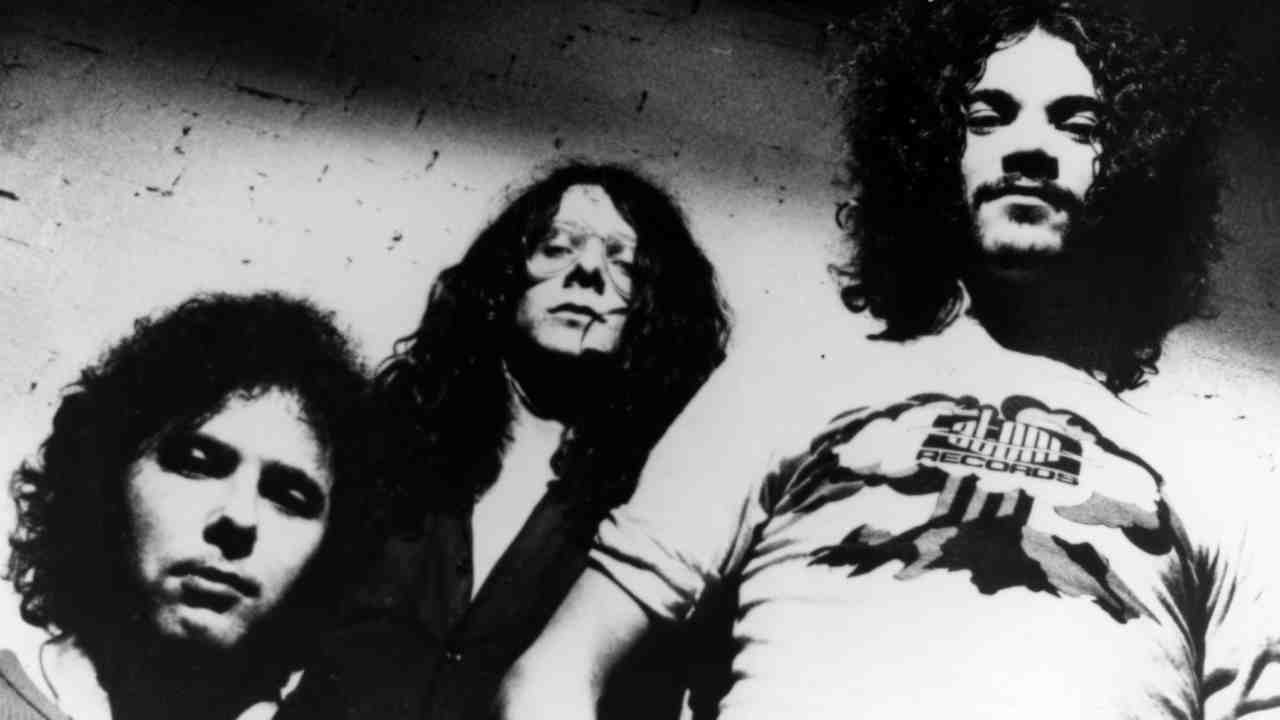Justin Hawkins on songwriting: "There’s always got to be an intangible ingredient"
The Darkness frontman Justin Hawkins names the perfect rock song, reveals what 'permission to land' really means, and admits he once wrote a song about a royal princess

Select the newsletters you’d like to receive. Then, add your email to sign up.
You are now subscribed
Your newsletter sign-up was successful
Want to add more newsletters?

Every Friday
Louder
Louder’s weekly newsletter is jam-packed with the team’s personal highlights from the last seven days, including features, breaking news, reviews and tons of juicy exclusives from the world of alternative music.

Every Friday
Classic Rock
The Classic Rock newsletter is an essential read for the discerning rock fan. Every week we bring you the news, reviews and the very best features and interviews from our extensive archive. Written by rock fans for rock fans.

Every Friday
Metal Hammer
For the last four decades Metal Hammer has been the world’s greatest metal magazine. Created by metalheads for metalheads, ‘Hammer takes you behind the scenes, closer to the action, and nearer to the bands that you love the most.

Every Friday
Prog
The Prog newsletter brings you the very best of Prog Magazine and our website, every Friday. We'll deliver you the very latest news from the Prog universe, informative features and archive material from Prog’s impressive vault.
Back in 2008, Classic Rock ran a feature about the Greatest Songs Ever Written. As part of that process, we spoke to a number of songwriters about their craft: how they did what they did, what inspired them, what songwriting had taught them.
Justin Hawkins, frontman of The Darkness, was one of those writers. Today he's also the man behind the brilliantly insightful (and extremely entertaining) YouTube channel Justin Hawkins Rides Again.

Do you remember the first song you ever wrote and how it came about?
Yeah, but it’s really embarrassing. It was a song called Beatrice. I was 12 or 13 years old. The chorus went something like: ‘My little Beatrice…’ I guess it was because I was thinking about Beatrice, the royal family child, who had just been born around that time. It wasn’t a sensitive ballad, it was a mid-tempo radio-rock song. How predictable is that?!
What makes for a good rock song?
I’ve actually started to reassess what I used to think were the key ingredients. Rock is such a broad spectrum that you can’t really nail it down. I guess it just boils down to a chorus, or a hook, that everyone can sing along to. It’s impossible to say. If everyone knew what makes for a good rock song then we’d have a mountain of great tunes being released every day.
There’s a lot of songs you hear that seem to have the magic formula – the arrangement is perfect, the chorus is catchy – but there’s something about it that doesn’t grab you. There’s always got to be an intangible ingredient.
Sign up below to get the latest from Classic Rock, plus exclusive special offers, direct to your inbox!
What’s an example of a perfect song?
Highway To Hell is close. I love the arrangement: single guitar, single guitar and drums, bass comes in at the bridge, then there’s a big chorus, then it’s back out again. It strips it back down and builds it up to a great climax. Plus there’s a big solo, of course.
For you, has the process of songwriting got easier or more difficult over the years?
I’ve always been an instinctive songwriter. I’ve had to be, because before I was a successful musician I was doing adverts and stuff, jingles and things; you just haven’t got time to second-guess yourself and go round the houses trying to find what’s right. I’ve been brought up to believe that whatever the instant idea is, then that’s usually the right thing, because it’s coming from the heart and it’s not contrived. I’ve managed to stick to that.
Having said that, I find recording pressures hard because you do find yourself layering things on top of your original song to try to improve things. But the kernel of the song, which is what we’re talking about I guess, has always been the same for me. I’m not the sort of songwriter who agonises over a piano for days on end.
Where do you find your inspiration for writing?
In lots of different places. Matters of the heart are a big inspiration. I also tend to write better songs when I’m in a really bad mood. It’s the rough with the smooth. I read a really inspiring interview with Diane Warren recently, where she said she always tries to write a song a week. That’s really good discipline, because even if you don’t necessarily end up with a great song you generate ideas that you can always apply to other stuff.
Sometimes I have dreams and then I run out of bed to lay down whatever I’ve got in my head. That’s the advantage of having a home studio. It’s usually a riff or a vocal line. I was looking through all my ProTools files the other day and there’s loads of folders that are called something like ‘I dreamt this’ or ‘An idea I had in the dead of night’. I had to fish through loads of stuff, but nine times out of 10 the ideas in there ended up in songs.
Which songs are you most proud of?
I’m really proud of I Believe In A Thing Called Love. It’s so simple and it’s got a great arrangement. And we [The Darkness] managed to get away with having pretty much three lead breaks – two long solos and one little break at the end. To have a big radio song where you can have that much self-indulgent noodling, it must mean that the actual hooks you’re singing are really powerful. That’ll probably end up being the hookiest song I’ll ever write.
Is it a good feeling when that happens?
Yeah. I hate it when you have to contrive stuff and shoehorn things together. I hate gluing old ideas together. I like to have an idea from beginning to end and see it through.
Apart from musical influences, where else do you look for inspiration for your songs?
I tend to just listen to people, listen to what they’re saying, because it’s much easier to write lyrics if they’re based on real-life conversations. That’s where the expression ‘permission to land’ [the title of The Darkness’s first album] came from. One of my mates was describing a girl he liked, but he couldn’t be territorial because they weren’t supposed to be together. It was the forbidden love thing. He said that all these guys were hovering around her, waiting for permission to land. I thought that was an awesome expression. So that’s where it came from.
Which more important in a rock song: the music or the lyrics?
They’re equally important. It’s 50-50, really. Absolutely.
Do you remember when you got to the point where you wrote a song and you thought: “I’m getting the hang of this now.”
No, not really. I remember writing a song and thinking: “No, that’s rubbish.” But never the other way round. No, I’ve never had that moment of songwriting epiphany. You just have to believe in your own abilities, otherwise you’ll never get a song finished.
This interview originally appeared in Classic Rock 123, in September 2008.
Geoff Barton is a British journalist who founded the heavy metal magazine Kerrang! and was an editor of Sounds music magazine. He specialised in covering rock music and helped popularise the new wave of British heavy metal (NWOBHM) after using the term for the first time (after editor Alan Lewis coined it) in the May 1979 issue of Sounds.
- Fraser LewryOnline Editor, Classic Rock

